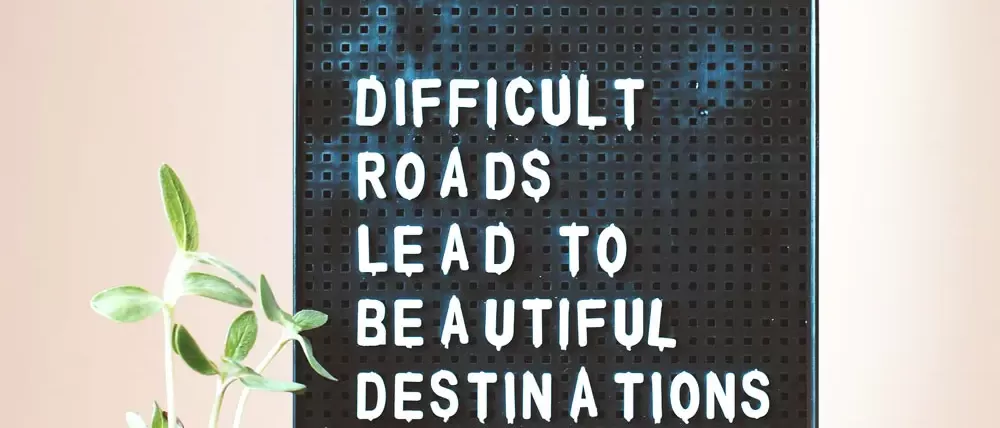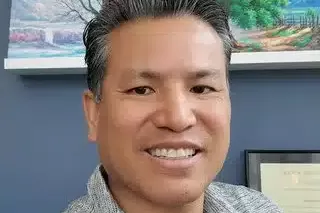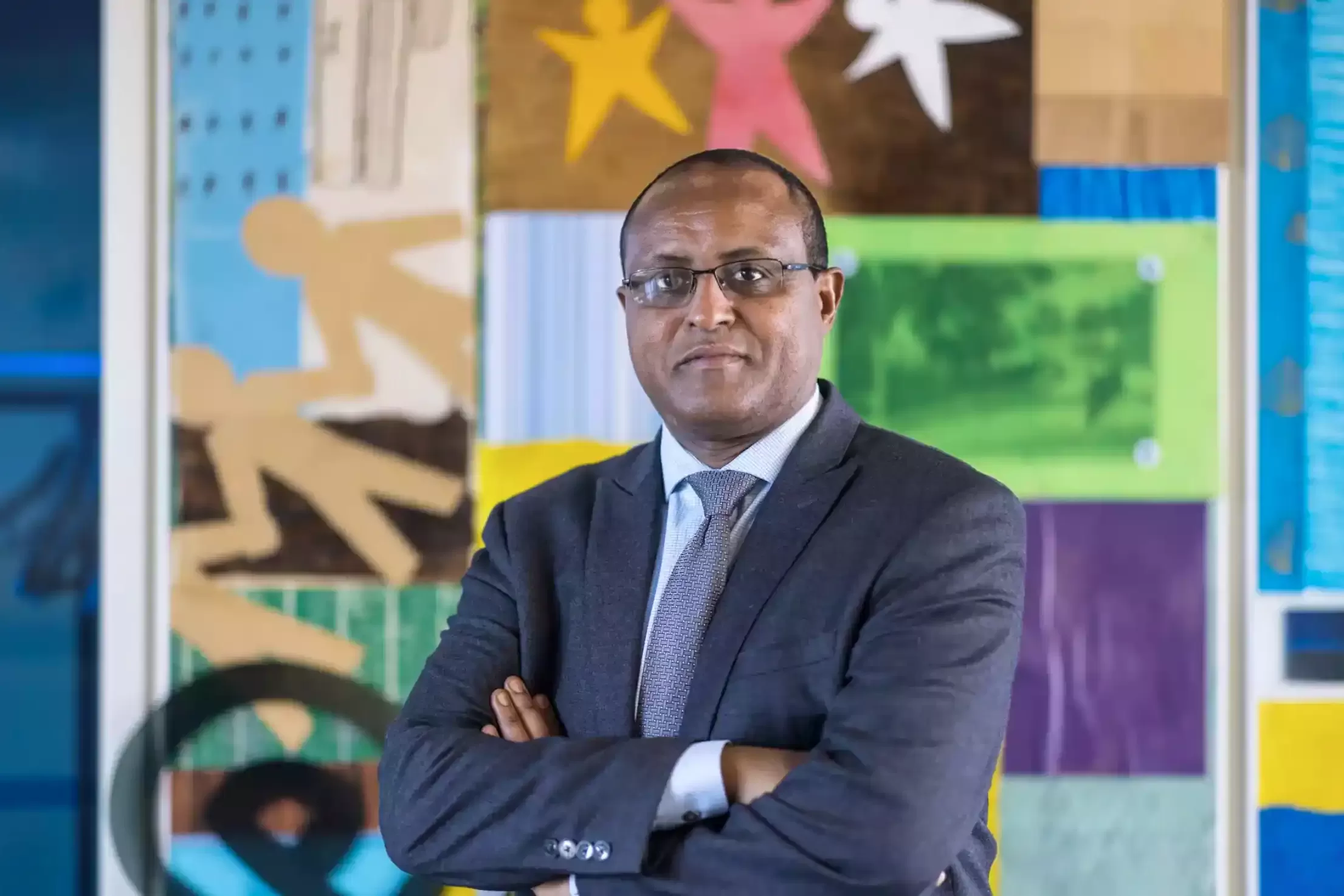In the heart of Minnesota, something important is happening in the communities of Roseville, St. Paul, Minneapolis, and the surrounding Twin Cities area. People are becoming more aware of the need to support and include individuals with developmental disabilities. In this article, we want to explore and better understand developmental disabilities.
We need to do more than just acknowledge the existence of individuals with developmental disabilities; we should genuinely welcome and include them in our communities. Inclusivity means recognizing the unique strengths, abilities, and perspectives that each person, regardless of their developmental challenges, brings. It’s about creating an environment where these individuals feel valued, respected, and empowered to fully participate in all aspects of community life. In other words, inclusivity is not just about recognizing differences. It is about actively removing obstacles and giving equal opportunities to those with developmental disabilities.

Understanding Developmental Disabilities
Developmental disabilities are a group of chronic conditions that emerge during childhood and can persist throughout life. They include autism spectrum disorders, cerebral palsy, Down syndrome, and intellectual disabilities. Each condition presents its own challenges and strengths, impacting abilities like daily activities, communication, and social interaction.
For example, autism spectrum disorders may affect social skills but also bring unique strengths like detailed focus. It is crucial to understand that these disabilities are part of the diverse human experience, with everyone possessing unique skills and potential. Recognizing this diversity is key to providing inclusive and effective support, enabling individuals to contribute meaningfully to their communities.
A Closer Look at the Data
The prevalence and impact of developmental disabilities can be better understood through statistical data. This data not only sheds light on how many individuals are affected but also guides policymakers, healthcare providers, and community organizations in developing targeted support strategies.
National Perspective
Broad Impact
The Centers for Disease Control and Prevention (CDC) estimates that approximately 1 in 6 children in the United States has been diagnosed with a developmental disability (as of September 2021)
Evolving Trends
There has been an increase in diagnoses, particularly autism spectrum disorders, likely due to improved diagnostic criteria and greater awareness.

Focus on Minnesota
Local Reflections
The prevalence in Minnesota mirrors the national average, indicating similar challenges and needs in our community.
State Initiatives
Minnesota is committed to addressing these needs with state-funded programs and inclusive education policies. The state is dedicated to meeting these requirements through state-funded initiatives and inclusive educational strategies. One such program offers home and community-based services to individuals of all ages diagnosed with developmental disabilities or related conditions, necessitating the level of care typically provided in intermediate care facilities for individuals with developmental disabilities (ICF/DD).
This program offers an alternative to institutionalization. Its primary goal is to empower individuals to lead independent lives within their communities. Simultaneously, it prioritizes their overall well-being, self-sufficiency, safety, and integration into the community.
Eligibility
To be eligible for the DD Waiver, an individual must meet several specific criteria, which are outlined as follows.
- Medical Assistance Eligibility: The person should be eligible for Medical Assistance (MA) based on their disability or another qualifying eligibility status.
- Disability Certification: The individual must be officially certified as disabled, either by Social Security or through the State Medical Review Team (SMRT) process.
- Developmental Disability or Related Condition: The person should have a developmental disability, or a related condition.
- Assessment for Level of Care: A comprehensive assessment using MnCHOICES or a DD screening should determine that the individual requires the level of care typically provided in an Intermediate Care Facility for Individuals with Developmental Disabilities (ICF/DD).
- Daily Interventions and Service Needs: The individual must require daily interventions, daily service needs, and a 24-hour plan of care that is specifically outlined in their support plan.
- Habilitation Need: An assessed need for habilitation services must be documented and included in the individual's support plan.
- Additional Supports and Services: Lastly, there should be an assessed need for support and services beyond what is available through the MA state plan.
Meeting all these criteria is vital for eligibility under the DD Waiver program in Minnesota. This eligibility enables individuals to access the essential support and services required to enhance their quality of life within the community.

Research and Development
The state hosts research institutions and advocacy groups contributing to research and public awareness about developmental disabilities. There are several notable research institutions and advocacy groups in Minnesota known for their work in this area:
University of Minnesota's Institute on Community Integration (ICI):
ICI is a prominent research institute that works on improving the lives of individuals with developmental disabilities. They conduct a wide range of research and provide training and information aimed at enhancing community services and support. — https://ici.umn.edu/
The Arc Minnesota:
This is an advocacy organization dedicated to promoting and protecting the human rights of people with intellectual and developmental disabilities, actively working on policy, and providing support services. — https://arcminnesota.org/
PACER Center:
Based in Minnesota, PACER is a parent training and information center that works on enhancing the quality of life and expanding opportunities for children and young adults with disabilities. — https://www.pacer.org/
Minnesota Department of Human Services:
They conduct, and support research and initiatives aimed at improving services and outcomes for individuals with developmental disabilities. — https://mn.gov/dhs/
Autism Society of Minnesota (AuSM):
AuSM provides advocacy, education, and support for individuals with autism spectrum disorder and their families. — https://ausm.org/
These organizations provide various resources, support, and advocacy for individuals with developmental disabilities and their families. Their websites offer a wealth of information, including research, training programs, policy updates, and community events.
Navigating Challenges Together
Individuals with developmental disabilities face various obstacles. Understanding these challenges is crucial for providing meaningful assistance and fostering an empathetic community.
Strengthening Support Systems in Our Community
The strength of a community is often reflected in how it supports its most vulnerable members. In the Twin Cities, enhancing support systems for individuals with developmental disabilities is a commitment to inclusivity and compassion.
Educational Opportunities
Dedicated Learning Environments
Educational institutions provide specialized learning environments and training for educators, catering to various learning styles and needs.
Continued Education and Adult Learning
Programs for adults focus on life skills, vocational training, and lifelong learning, important for independent living and community participation.

Accessible Community Resources
Support Networks and Groups
Support groups and networks offer resources, emotional support, and advice for individuals with developmental disabilities and their families.
Recreational and Social Inclusion
Inclusive recreational activities and social programs in the Twin Cities provide opportunities for personal growth, social interaction, and fun.
Healthcare and Wellness Services
Specialized healthcare and wellness services address both physical health and emotional well-being, ensuring comprehensive support.
By strengthening these systems, we ensure individuals with developmental disabilities in the Twin Cities have the resources and opportunities to thrive, creating an environment where everyone is valued for their unique contributions.
Enhancing Lives through In-Home Care
SAFEWAY HHC’s in-home care services are tailored to the unique needs of individuals with developmental disabilities, emphasizing independence and comfort at home.
Our caregivers assist with daily tasks and provide companionship, adapting to each person’s unique challenges and preferences. Collaborating with families, we ensure a personalized and supportive care experience, aiming to improve the overall quality of life for our clients.
Fostering Community Involvement
Creating a supportive and inclusive community for individuals with developmental disabilities involves active participation from all members of society. Fostering this community involvement is essential for driving positive change and enhancing the quality of life for those affected.
The Power of Education
Educational initiatives play a critical role in improving our collective understanding of developmental disabilities. These efforts go beyond merely sharing information; they aim to dispel myths, reduce stigma, and promote empathy and understanding. Schools, community centers, and online platforms can host workshops, seminars, and training sessions, making knowledge accessible to all.
Additionally, involving individuals with developmental disabilities in these educational efforts can provide first-hand insights, making the learning experience more impactful. By increasing awareness, we lay the groundwork for a society that is not only informed but also compassionate and inclusive.
Advocacy for Positive Change
Advocacy and active involvement in policymaking are powerful tools for fostering systemic change. They ensure that the needs and rights of individuals with developmental disabilities are represented and addressed in legislation and public policy.
This can involve lobbying for better healthcare services, more accessible public spaces, or improved educational resources. Advocacy groups, community organizations, and individuals can collaborate to amplify their voices and influence decision-makers.

Conclusion
In the Twin Cities, we are not only presented with a unique opportunity but also carry a significant responsibility to effect positive change in the lives of individuals with developmental disabilities.
Our commitment to understanding their needs, providing unwavering support through tailored services such as those offered by SAFEWAY HHC, and cultivating an inclusive and accepting community is not just a noble endeavor; it is a collective imperative. Through these concerted efforts, we can pave the way for a more inclusive and compassionate society where every individual, regardless of their developmental challenges, can aspire to and achieve a richer, more fulfilling life.
In doing so, we not only uplift those directly affected but also enrich the entire community, fostering a sense of unity, empathy, and shared humanity that benefits us all.
References
- Centers for Disease Control and Prevention (CDC)
- Minnesota Department of Human Services
- Local Educational and Community Support Resources
- The data referenced in the article comes from reports and surveys conducted in the years 2019 to 2021. According to the information from Disability Scoop and Medical Xpress, the incidence of developmental disabilities among children aged 3 to 17 in the U.S. increased from 7.4% in 2019 to 8.56% in 2021(https://medicalxpress.com/news/2023-07-children-developmental-disability-cdc.html) (https://www.disabilityscoop.com/2023/07/17/cdc-finds-significant-increase-in-kids-with-developmental-disabilities/30460/). The increase was primarily driven by a rise in diagnoses of developmental delays other than autism and intellectual disability. This data reflects a significant and notable trend in the prevalence of developmental disabilities in recent years.
Share
Subscribe To Our Newsletter
Safeway HHC Contributors
Our dedicated team of home health care professionals works closely with clients and their families to develop a personalized care plan that reflects their values and priorities. We strive to empower our clients to take an active role in their care and to make informed decisions about their health and well-being.
Related News
April 11, 2024
Trauma and Keo, a Licensed Clinical Counselor
Cultural stigma, misunderstanding, language barriers, financial constraints,…
April 2, 2024
Dr. Abe: A Mental Health Leader for a Community in Need
Whether new arrivals, permanent residents, or naturalized citizens, African…
March 25, 2024
Emeldah: The Strength It Takes to Seek Mental Health Help
Emeldah Mwansa is a 68-year-old mother of three adult children and four…


